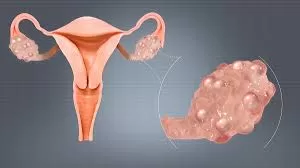A recent study reveals that adolescent girls diagnosed with polycystic ovary syndrome (PCOS) face a significantly higher risk of developing hypertension, underscoring the need for heightened blood pressure monitoring in this group. The research, conducted by Dr. Sherry Zhang at the Kaiser Permanente Oakland Medical Center, California, highlights the association between PCOS and elevated blood pressure, marking a critical area of concern for healthcare providers.
Key Findings
The study analyzed data from 224,418 adolescent girls who visited healthcare centers between 2013 and 2019. Of these girls, who had an average age of 14.9 years, 15.8% were classified as having obesity. Systolic and diastolic blood pressures were measured during their well-child visits, and hypertension was defined according to the 2017 American Academy of Pediatrics Practice Guideline, which sets a threshold of 130/80 mm Hg or higher.
Results indicated that 18.2% of girls with PCOS had blood pressure readings in the hypertensive range, compared to only 7.1% of girls without the condition. This difference was statistically significant (P < .001). Moreover, the risk of hypertension in adolescent girls with PCOS was 25% higher than in those without PCOS (adjusted odds ratio [aOR], 1.25; 95% CI, 1.10-1.42). Similarly, adolescent girls with both obesity and PCOS had a 23% higher risk of hypertension compared to their peers without PCOS (aOR, 1.23; 95% CI, 1.06-1.42).
“The high prevalence of hypertension associated with PCOS emphasizes the key role of early blood pressure monitoring in this high-risk group,” the study’s authors wrote.
Methodology
This retrospective cohort study utilized a large, diverse, community-based healthcare population in the United States, offering valuable insights into the health of adolescent girls diagnosed with PCOS. The researchers relied on coded diagnoses of PCOS and recorded blood pressure measurements from routine well-child visits, ensuring a broad dataset for analysis.
Practical Implications
Given the substantial link between PCOS and hypertension, this study highlights the importance of routine blood pressure surveillance for adolescent girls with PCOS. Healthcare providers are encouraged to adopt early monitoring protocols to identify and manage elevated blood pressure in this at-risk population. Early intervention could prevent long-term cardiovascular complications, making it crucial for pediatricians, endocrinologists, and other healthcare professionals to remain vigilant in their care of girls with PCOS.
Study Limitations
While the findings offer important clinical insights, the study has limitations. The reliance on coded diagnoses from clinical settings may introduce detection and referral biases, as some girls with undiagnosed PCOS or hypertension might not have been captured in the dataset. Moreover, the findings may not be generalizable to populations where systematic screening for both PCOS and hypertension is not routinely performed.
Funding and Disclosures
The study was funded by the Cardiovascular and Metabolic Conditions Research Section and the Biostatistical Consulting Unit at the Division of Research, Kaiser Permanente Northern California, and the Kaiser Permanente Northern California Community Health Program. The authors declared no conflicts of interest.
Conclusion
The growing body of research linking PCOS to hypertension in adolescence adds a critical dimension to the management of this condition. Early blood pressure monitoring and intervention could mitigate the long-term health risks faced by adolescent girls with PCOS, particularly those with obesity. As awareness of these associations grows, healthcare systems will need to adapt to ensure better health outcomes for this vulnerable population.
This study was published online on October 14, 2024, in the American Journal of Preventive Medicine.












